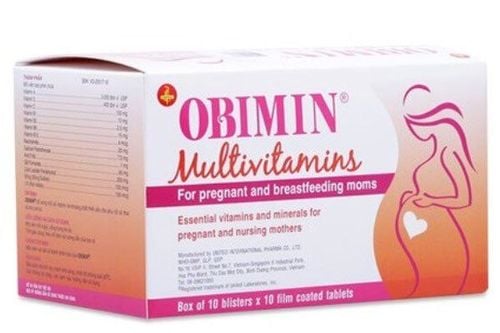During pregnancy, some people may change their eating habits. Researchers have provided evidence to explain this phenomenon as being related to hormones. The craving for sour, sweet, or salty foods in pregnant women is similar to the cravings experienced by women during different phases of their period, which are also influenced by hormones.
1. Food cravings during pregnancy:
Some medical theories suggest that cravings for sweet, salty, or sour foods during pregnancy may represent the body’s way of adapting to meet specific nutritional needs. For example, craving dairy products like milk could indicate a calcium deficiency, while craving fruits may reflect a need for more vitamin C. In practice, commonly craved foods during pregnancy include fruits, milk, dairy products, chocolate, and salty snacks, all of which may provide essential nutrients.
Taste and dietary preferences often change throughout pregnancy due to hormonal fluctuations. These changes can significantly influence daily food choices. For instance, researchers suggest that cravings for sweet foods during pregnancy might result from the body’s increased energy and calorie requirements during this critical phase of development.
Dr. Valerie Duffy, from the School of Allied Health at the University of Connecticut in Storrs, conducted research highlighting several notable changes in food preferences during pregnancy:
Increased preference for sour foods in the second and third trimesters. Women tend to prefer sour flavors more in the second and third trimesters compared to the first trimester or pre-pregnancy. Similar to cravings for sweet foods, a preference for sour foods may promote a more varied diet later in pregnancy, ensuring sufficient calorie intake. Cravings for sour foods may explain the classic desire for pickles during pregnancy. Additionally, since fruits often combine sweet and sour flavors, this may clarify why fruits are the most commonly consumed foods among pregnant women.
Growing cravings for salty foods. Salt cravings, including foods like potato chips and pickles, often increase as pregnancy progresses. This shift in taste preferences could be linked to the rise in blood volume during pregnancy, which may lead to a greater demand for sodium.
Heightened sensitivity to bitter flavors in the first trimester. Pregnant women exhibit a greater sensitivity to bitter tastes during the first trimester. Scientists theorize this may be an evolutionary defense mechanism, protecting against the ingestion of potentially toxic plants and fruits, many of which have a bitter flavor. Dr. Duffy suggests this taste change serves as a warning system, helping pregnant women avoid harmful substances, such as alcohol, during critical stages of fetal development. Interestingly, sensitivity to bitter tastes tends to diminish by the third trimester, when major stages of fetal development are complete.
Trắc nghiệm: Bạn có hiểu đúng về dấu hiệu mang thai sớm?
Các dấu hiệu mang thai sớm không phải chỉ mỗi trễ kinh mà còn có rất nhiều dấu hiệu khác như xuất huyết âm đạo, ngực căng tức,… Điểm xem bạn biết được bao nhiêu dấu hiệu mang thai sớm thông qua bài trắc nghiệm này nhé!
2. Managing weight gain during pregnancy
Taste changes during pregnancy often start as natural biological needs, but they can sometimes lead to overeating, especially in developed countries. Dr. Deborah Bowen from the Fred Hutchinson Cancer Research Center explains that while these changes help ensure you eat enough for healthy weight gain, they can also make it easy to overeat. For example, eating a single candy bar or a tub of ice cream can quickly lead to excess weight gain. Moreover, consuming sugary snacks all day offers little nutritional value. Excessive weight gain during pregnancy can increase the risk of complications such as gestational diabetes and high blood pressure.
For women with a normal pre-pregnancy weight, gaining 11–16 kg (24–35 pounds) is recommended, which equals about 300 extra calories per day. If you find yourself craving sweets frequently, focus on choosing foods that are both sweet and nutritious, like fruits.
Here are some simple and healthy swaps to manage cravings:
Ice cream alternatives: Choose lemon sorbet, fruit popsicles, or low-fat frozen yogurt.
Pastry or donut cravings: Replace them with whole-grain bagels or toast with fruit jam.
For salty snacks like chips: Opt for baked chips, whole-grain crackers, or air-popped popcorn.
Chocolate cravings: Limit yourself to a few small squares of chocolate or have a glass of chocolate milk.
Instead of soda: Try flavored sparkling water or mix fruit juice with sparkling water.
For baked goods and desserts: Choose low-fat options like banana bread or zucchini bread instead of sugary cakes or cookies.
Making these healthier choices allows you to enjoy your cravings in moderation while meeting the nutritional needs of both you and your baby
Appetite changes that perhaps begin as a true biological or physiological need before excessive food intake can backfire, are particularly common in developed countries. Deborah Bowen at the Fred Hutchinson Cancer Research Center in Seattle says the body's changes allow you to eat enough for proper weight gain but can also cause you to overeat. Just one candy bar or box of ice cream can make you gain too much weight, not to mention eating candy all day has no nutritional benefits. And excessive weight gain can increase your risk of gestational diabetes and high blood pressure.An average weight woman needs to gain 11 to 16 kg during pregnancy, that would equate to about 300 additional calories per day. If you find yourself craving sweets excessively, try to choose foods that are sweet but still nutritious, such as fruit.
Here are some healthy and satisfying alternatives to unhealthy cravings:
Instead of ice cream, try lemon ice cream, juice, Popsicles or low-fat frozen yogurt. If you're craving donuts or cakes, try whole-grain bagels or jam toast. Instead of french fries, try baked potato chips, cookies, or microwaved popcorn. If you can't stop thinking about chocolate, just eat a few squares instead of a whole bar or just chocolate milk. Instead of soda, drink some flavored mineral water or juice mixed with mineral water. Besides, when you want a cake, cookie, or cake, try low-fat banana bread or zucchini.

3. Psychological cravings during pregnancy
Some researchers suggest that food cravings during pregnancy are not always linked to nutritional deficiencies but are instead rooted in desire or habit. After all, if someone craved protein, why wouldn’t they reach for lentils or sardines? These foods are rich in protein, sometimes even more so than beef or bacon. Interestingly, pregnant women tend to crave specific foods rather than a wide variety within a food group.
These cravings are likely influenced by a combination of biological, psychological, and environmental factors. Dr. Bowen points out that the messages women receive during pregnancy—particularly about what foods they should eat—can shape their cravings. For example, being told to include more dairy in your diet might lead to an increased desire for milk or even consuming more ice cream than usual.
Understanding the psychological aspects of cravings can help pregnant women manage their diet more effectively, focusing on nutritious options while still satisfying their desires in moderation.
4. Certain foods and pregnancy
Some foods are more likely to trigger nausea or aversion, and studies show that meat is one of the most common culprits. Dr. Fessler explains that meat and other animal-based proteins, including eggs and seafood, are more prone to carrying foodborne illnesses. Evolutionarily, this may have led women to naturally avoid these foods during pregnancy.
For many women, it’s not just the taste but also the smell of food that can cause aversion. In fact, research suggests that pregnant women often experience a heightened sense of smell due to hormonal changes, which can influence both their cravings and the foods they avoid.
What about unusual cravings? If you find yourself craving non-food items—such as paint chips, starch, or dirt—resist the urge to consume them, as many of these substances can be toxic to both you and your baby. If you experience these cravings, inform your doctor. In some studies, pica (the craving for non-food items) has been linked to nutrient deficiencies, such as iron or zinc. Addressing these deficiencies can help reduce such cravings and ensure a healthier pregnancy.

Some women also crave non-food items like flour or cornstarch. While small amounts of these are generally harmless, consuming large quantities can lead to digestive issues or discomfort. Other foods can pose health risks during pregnancy, such as raw fish and raw eggs. Dr. Stone points out that, aside from actual health hazards, it's normal to experience cravings. For those who love pickles, you can likely breathe a sigh of relief, as they are generally safe to enjoy during pregnancy.
To arrange an appointment, please call HOTLINE or make your reservation directly HERE. You may also download the MyVinmec app to schedule appointments faster and manage your reservations more conveniently.













